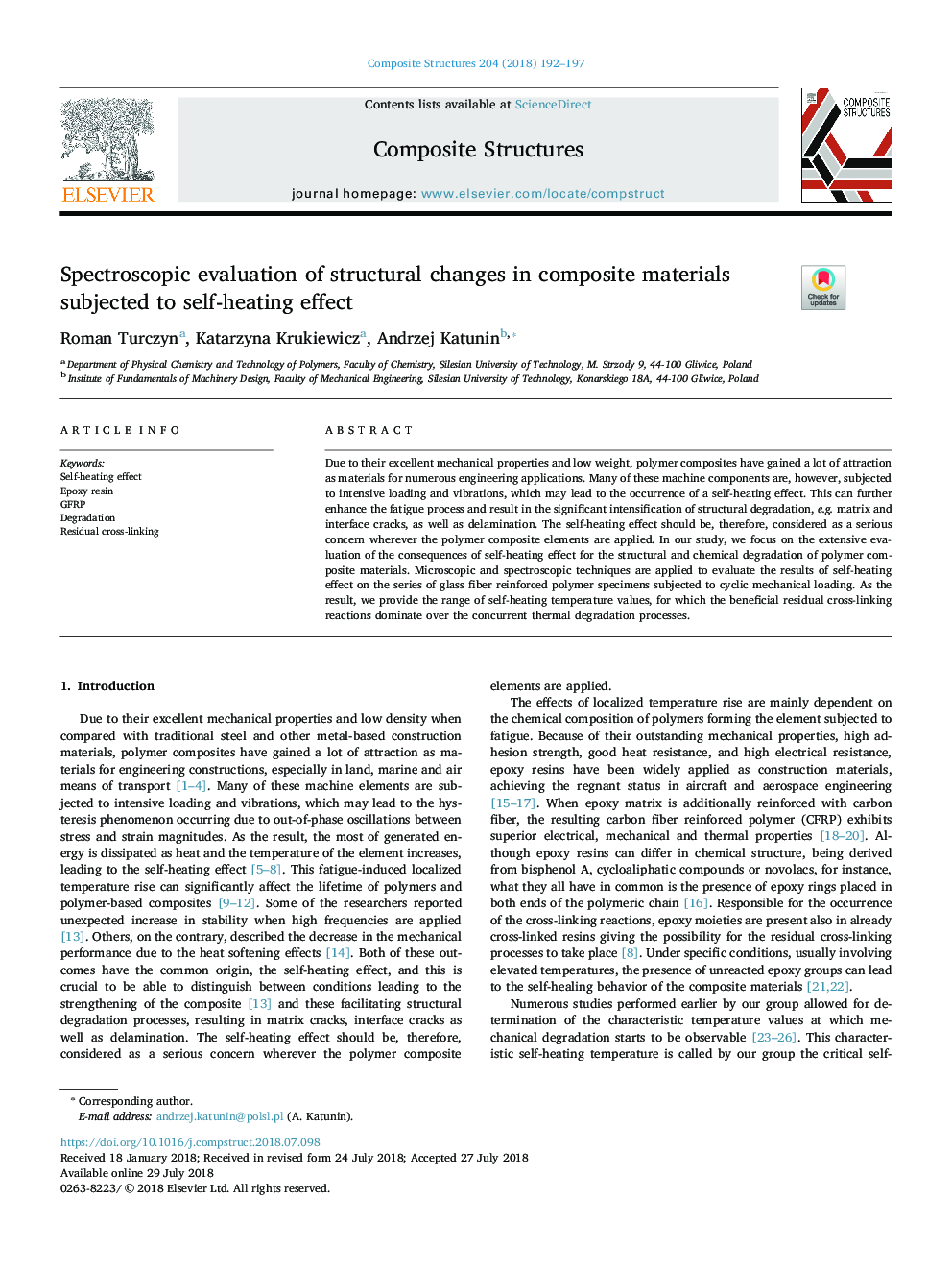| Article ID | Journal | Published Year | Pages | File Type |
|---|---|---|---|---|
| 6702507 | Composite Structures | 2018 | 6 Pages |
Abstract
Due to their excellent mechanical properties and low weight, polymer composites have gained a lot of attraction as materials for numerous engineering applications. Many of these machine components are, however, subjected to intensive loading and vibrations, which may lead to the occurrence of a self-heating effect. This can further enhance the fatigue process and result in the significant intensification of structural degradation, e.g. matrix and interface cracks, as well as delamination. The self-heating effect should be, therefore, considered as a serious concern wherever the polymer composite elements are applied. In our study, we focus on the extensive evaluation of the consequences of self-heating effect for the structural and chemical degradation of polymer composite materials. Microscopic and spectroscopic techniques are applied to evaluate the results of self-heating effect on the series of glass fiber reinforced polymer specimens subjected to cyclic mechanical loading. As the result, we provide the range of self-heating temperature values, for which the beneficial residual cross-linking reactions dominate over the concurrent thermal degradation processes.
Related Topics
Physical Sciences and Engineering
Engineering
Civil and Structural Engineering
Authors
Roman Turczyn, Katarzyna Krukiewicz, Andrzej Katunin,
